Book Sharing Event for Spanish Edition of Xi Jinping: The Governance of China Held in Buenos Aires
On the morning of April 15 local time, a book sharing event for the Spanish edition of Xi Jinping: The Governance of China was held in Buenos Aires, the capital city of Argentina, under the auspices of China International Group (CICG) and the Chinese Embassy in Argentina. It was hosted by Foreign Languages Press (FLP), the CICG Center for the Americas, and the Confucius Institute at the University of Buenos Aires (UBA).
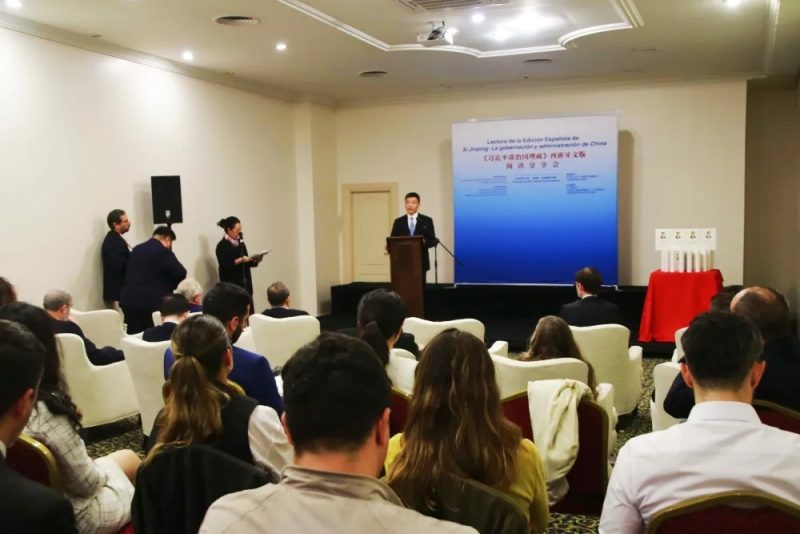
▲ Venue of the event
The event was attended by around 50 people, including CICG Vice President Yu Tao, Chinese Ambassador to Argentina Wang Wei, Director of the Program on China-Argentina Cooperation at the National University of Lanus and Former Argentine Ambassador to China Gustavo Sabino Vaca Narvaja, Former Argentine Ambassador to China Diego Guelar, UBA Vice President and Co-Director of the Confucius Institute at UBA Patricio Conejero Ortiz, Chair of the Academic Board on China, Latin America and the Caribbean Studies, Co-Director of the Confucius Institute, and Director of the Interdisciplinary China Studies Program at the University of Congress in Argentina Mercedes Sola, President of the Argentine Chamber of Books and Corregidor Editions Juan Manuel Pampín, President of FLP Hu Kaimin, and representatives from Argentina’s political, academic, and cultural circles. Director of CICG’s Department of Coordination and Management Xin Feng hosted the event.

▲Yu Tao delivering a speech
Yu Tao noted in his speech that “Chinese modernization” is a buzzword that has a popular appeal for the international community, which is eager to know more about its meaning. Xi Jinping: The Governance of China provides a systemic introduction to how the Communist Party of China (CPC) has led the Chinese people in pioneering a Chinese path to modernization, as an authoritative source for readers across the world to understand China in the new era and Chinese modernization. It presents a clear picture to the world of the bright future of the Chinese path to modernization, a profound understanding of mutual learning among civilizations, and the wisdom of peaceful development. The book aims to communicate to readers in Argentina and across Latin America that Chinese modernization is based on China’s unique values and its views on civilization, development, democracy, and the eco-environment – which were formed in the context of the Chinese civilization – and also on the country’s great endeavors to practice them. It showcases the diversity of modernization approaches and provides new options for other developing countries to realize modernization.
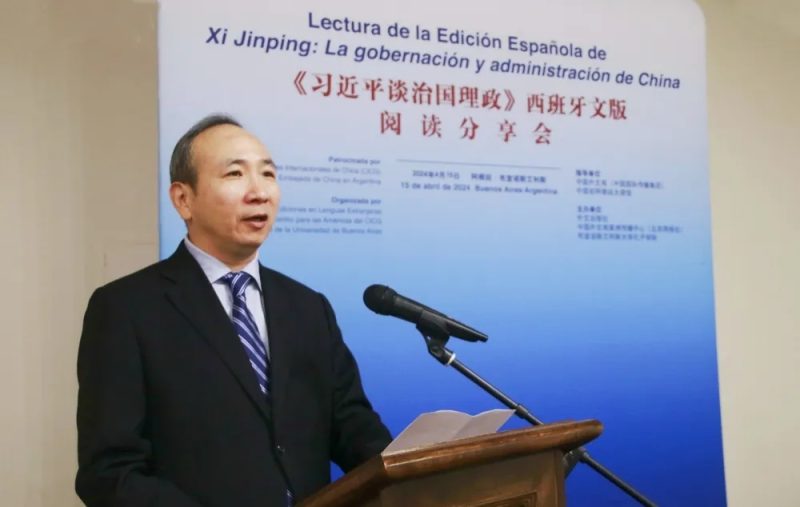
▲Wang Wei delivering a speech
Wang Wei highlighted in his speech that China and Argentina share firm foundations for friendship and cooperation, and that people from different sectors of society in both countries yearn for exchanges and communication. He views Xi Jinping: The Governance of China as a systematic presentation of the Chinese leader’s philosophy and guidelines of state governance in the new era, which enables readers to find answers to how a people-centered governing party has sought development for the country, handled its relations with the rest of the world, and led the Chinese people in pioneering a Chinese path to modernization. Wang expressed hope that more Argentine readers will understand China in the new era through this book, further boosting friendship between the two peoples and cooperation between the two countries.
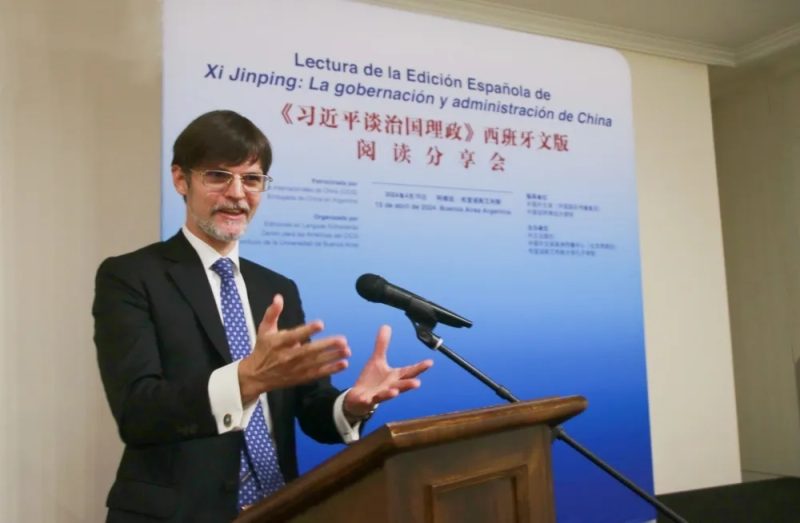
▲Gustavo Sabino Vaca Narvaja delivering a speech
Gustavo Sabino Vaca Narvaja said in his speech that the publication of four volumes of Xi Jinping: The Governance of China and their Spanish editions deserves appreciation and respect. He noted the wide circulation of the book and believes that the Spanish editions enable readers from all social sectors of Argentina to better understand China, and the Belt and Road Initiative, the three global initiatives (Global Development Initiative, Global Security Initiative, and Global Civilization Initiative), and the vision of common development proposed by President Xi, thereby further promoting the development of relations between China and Argentina.
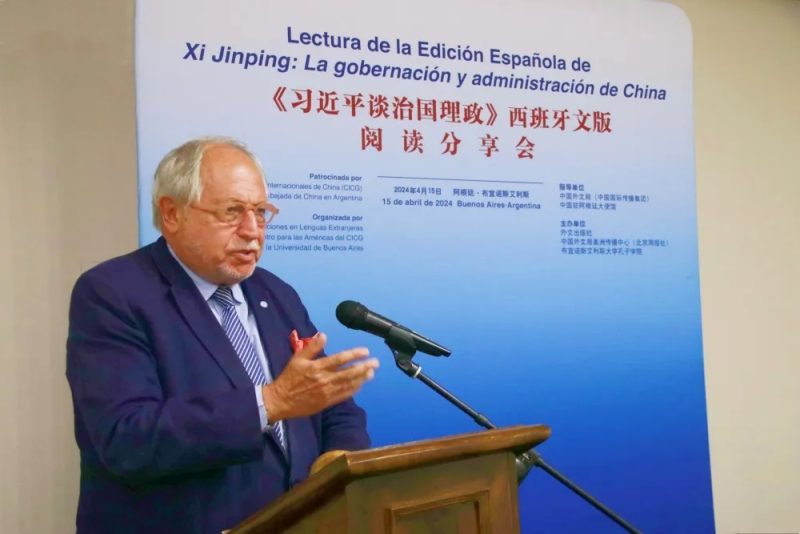
▲Diego Guelar delivering a speech
Diego Guelar stated in his speech that the Spanish editions of Xi Jinping: The Governance of China showed once again the importance of accurately communicating to the world the ideas and development philosophy of contemporary China from an authoritative source, believing that the book enables the world to understand China better and promotes the friendship between China and Argentina and cooperation within the international community.

▲Patricio Conejero Ortiz delivering a speech
Patricio Conejero Ortiz noted in his speech that China’s development path and plans are illustrated clearly in this book, and that the parts on Chinese modernization and independent technological innovation, in particular, provide other countries with inspiring examples for their development. He said that it would help Latin American countries, especially Argentina, to find solutions to their structural economic problems and a new development model.
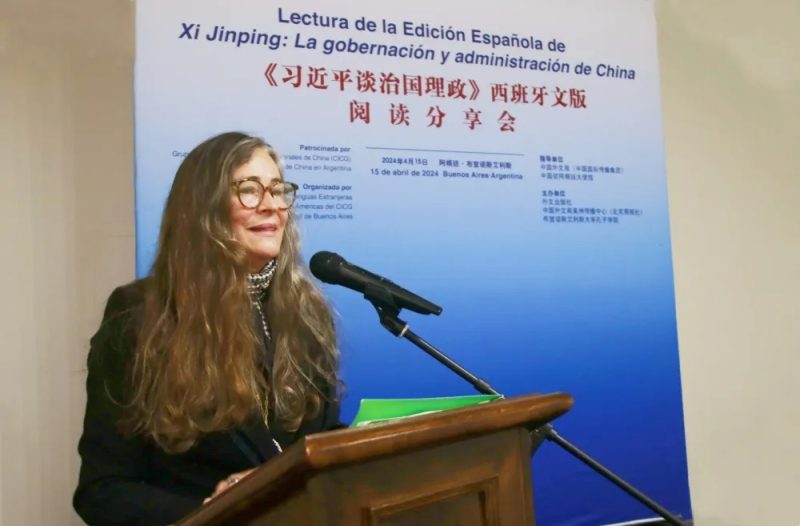
▲Mercedes Sola delivering a speech
Mercedes Sola said in her speech that China and Latin American countries share many keywords in state governance, including putting people first, a global community of shared future, peaceful development, and multilateralism. She called for synergy from institutes of higher education, think tanks, and international communication institutions, which should play a more important role in promoting exchanges and mutual learning between China and Argentina, and between China and the wider Latin American world.
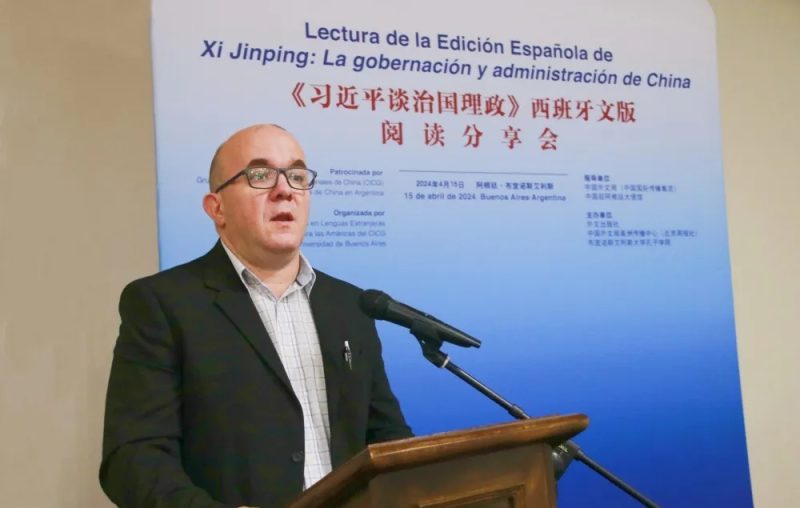
▲Juan Manuel Pampín
Juan Manuel Pampín highlighted in his speech that book publishing is an important carrier of people-to-people exchanges between China and Argentina. He expressed appreciation to the Chinese publishers for their efforts in introducing the works and ideas of President Xi Jinping to the international community, saying that this book can provide readers with an authoritative source on China’s development philosophy and path in the future. He noted that the Argentine Chamber of Books looks forward to making joint efforts with Chinese publishers in promoting Xi Jinping Thought on Socialism with Chinese Characteristics for a New Era in Hispanic countries.
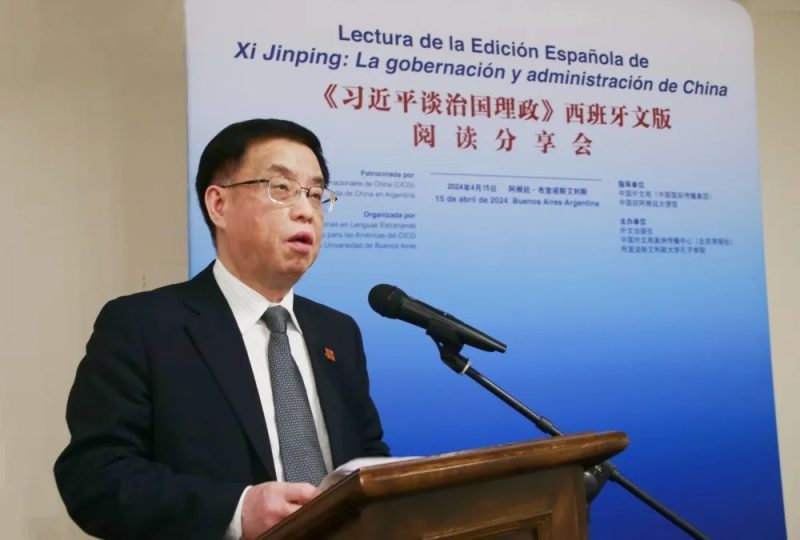
▲Hu Kaimin delivering a speech
Hu Kaimin said in his speech that the first volume of Xi Jinping: The Governance of China was published 10 years ago as a timely response to questions and concerns of the international community on where China would head to in the new era, how the country would address its problems and challenges in development, and how it would interact with other nations. The book sincerely and open-mindedly converses with the world on an equal footing, in plain yet vivid language and from the perspective of China’s top leader, stated Hu. Over the past decade, the power of truth rooted in Xi Jinping Thought and the charm of language has won the book wide acclaim and warm responses from readers around the world, from prominent government officials to students, across social systems and cultural backgrounds. It has become a phenomenon acknowledged by the international publishing market and media, as a gift presented to the world by China.
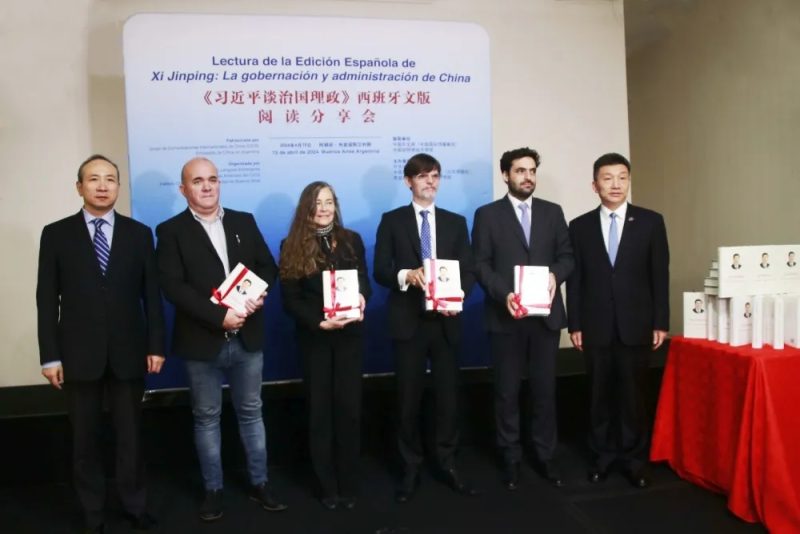
▲Book presentation
Yu Tao and Wang Wei presented the Spanish edition of Xi Jinping: The Governance of China to the Argentine guests.
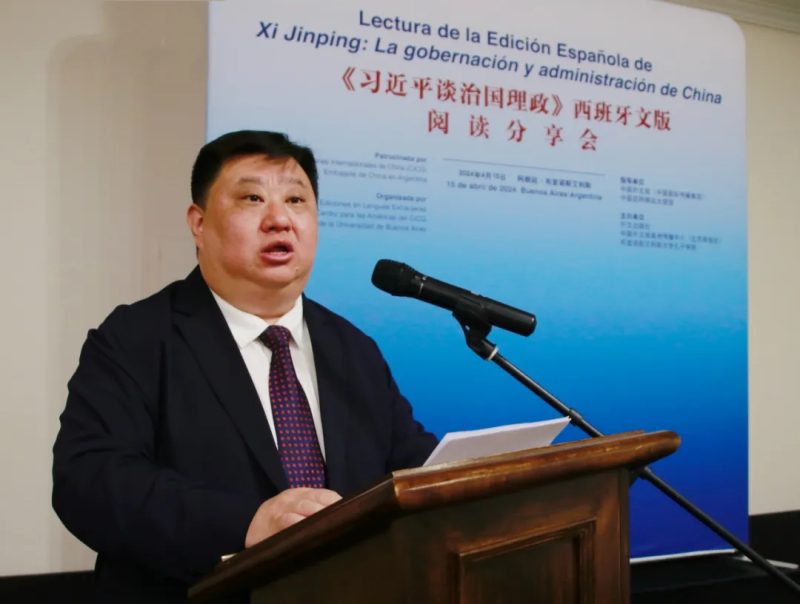
▲Xin Feng, host of the event
To date, Xi Jinping: The Governance of China has been translated and published in 41 languages, and distributed in 180 countries and regions across the globe.
